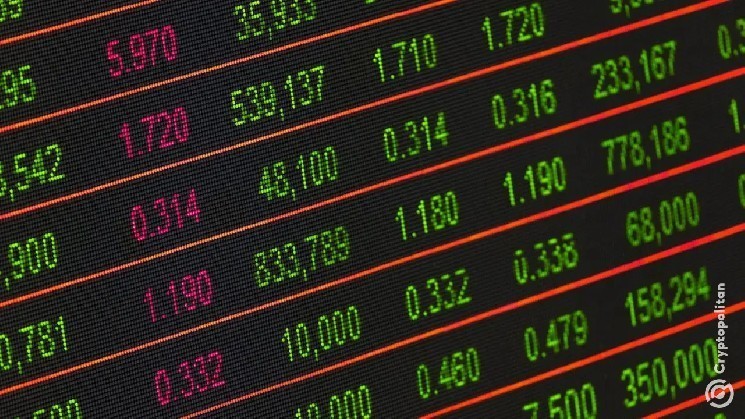Crypto bros say they’re rebuilding Wall Road on-chain. They are saying tokens tied to real-world shares like Nvidia, Apple, and even Elon Musk’s Tesla could make world investing simpler, however the second you begin paying consideration, it’s simply chaos, pretend costs, authorized complications, and nil guardrails.
On the finish of June, Robinhood, Kraken, Gemini, and Bybit launched blockchain variations of American shares and ETFs for customers outdoors the U.S. Robinhood tried to steal the present with a dramatic occasion in France. They even themed it after a Hitchcock movie.
However issues didn’t go as deliberate. Their tokens, constructed for firms like OpenAI and SpaceX that haven’t even gone public, triggered a backlash. OpenAI responded instantly on social media: “We didn’t accomplice with Robinhood, weren’t concerned on this, and don’t endorse it.” Lithuania’s central financial institution, which regulates Robinhood’s European operations, contacted the corporate for clarification.
Wild worth swings hit tokenized shares hours after launch
On July 3, the AAPLX token—meant to replicate Apple’s inventory—hit $236.72, a 12% premium above Apple’s precise worth. The Amazon token, AMZNX, spiked to $891.58 simply two days later—4 instances greater than Amazon’s final shut.
However the largest dislocation occurred that very same week on Jupiter, a peer-to-peer buying and selling platform. A single dealer tried to purchase $500 price of AMZNX, and that alone despatched the token to $23,781.22. That’s over 100x Amazon’s actual worth.
All these tokens had been issued by Backed Finance, a Swiss firm that rolled them out on June 30 by way of partnerships with Kraken and Bybit. Backed calls them “xStocks” and claims they’re backed one-to-one with actual shares.
When folks purchase extra tokens, the corporate buys extra shares. When folks promote, they burn tokens and dump the shares. The thought is that token costs ought to keep near the true ones. However in actuality, these tokens are barely traded.
Liquidity is weak, and a small commerce is sufficient to throw off the value utterly, particularly on weekends, nights, or holidays when the inventory market is shut.
A Backed spokesperson allegedly instructed the Journal that: “We’re actively monitoring any of those worth dislocations and fascinating with exchanges to verify they work to repair this and comply with finest practices to verify this doesn’t occur.” However crypto isn’t recognized for its “finest practices,” particularly when trades occur on nameless platforms.
Lack of oversight opens doorways for abuse
The U.S. inventory market depends on strict controls. Brokerages confirm identities. Exchanges monitor trades. Regulators observe suspicious exercise. That total system doesn’t exist right here. Backed’s xStocks are “permissionless.”
Meaning they will transfer between wallets and platforms with zero friction. Kraken may log identities, however Jupiter doesn’t. As soon as tokens transfer to a decentralized platform, they’re utterly off the radar.
Gemini co-founder Cameron Winklevoss argued, “By tokenizing equities, we consider we will export U.S. capital markets anyplace on the planet.” However that dream ignores the core drawback, which is that shares traded with out transparency or regulation invite catastrophe. Certain, the blockchain makes transactions public, however names and faces could be completely hidden, as we’ve seen with North Korea’s Lazarus Group. They may not even be North Korea in any respect, as a result of we have now no method of realizing for certain. And that’s precisely how insider buying and selling and pump-and-dump schemes thrive.
Carlos Domingo, CEO of Securitize, known as it like it’s: “It’s a can of worms and it will explode sooner or later, as a result of folks will discover methods to do one thing unlawful with these tokens.”
And that’s the true danger right here. These tokens may appear to be progress, however additionally they make it simpler for market abuse to go undetected. And there’s zero signal that this was a one-time factor.


